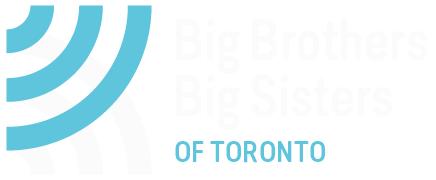Big Brothers, Big Sisters of Toronto (BBBST) didn’t necessarily know what they would learn when they received a one-year Seed Grant from the Ontario Trillium Foundation. That’s why the grant was needed in the first place. The organization recognized the struggle to meet the demand for services in Scarborough, and the funding from the Seed Grant was set aside to investigate the cause.
The findings proved to be revelatory. BBBST discovered that its visibility in the community was waning. If it wanted to attract more volunteers, it would need to move beyond Toronto’s downtown core and build stronger relationships with people in Scarborough.
It also meant that BBBST knew exactly what it needed to do when it received a second Grant from the Ontario Trillium Foundation. If the initial Seed Grant helped BBBST identify the problem, the subsequent three-year Grow Grant provided the resources needed to put a new decentralization strategy into motion.

To that end, BBBST was able to hire a dedicated Scarborough team to spearhead its outreach efforts. BBBST has now completed the first year of the three-year term of the Grant and is thriving under the leadership of Scarborough Service Delivery Manager Alexandra Drakos and Community Engagement Specialist Azfar Islam.
According to Drakos, many of those improvements can be attributed to the fact that BBBST took the time to listen to the community they were ostensibly trying to serve. BBBST examined everything from its volunteer recruitment to its marketing and tried to come up with programming that better reflected the specific needs of people in Scarborough.
“Do they see themselves in the imagery we’re posting on Instagram?” Drakos asks. “Are they realizing that this service is even available in their community? They were open about sharing their opinions and we’ve been able to implement their feedback in the initiatives we’ve been pushing for the last year.”
Of course, any struggling organization can decide that it would like to try a new approach. It’s far more difficult to map out a strategy that generates results. The thing that makes BBBST’s decentralization program so remarkable is that the new initiatives have directly translated to better outcomes for the children.
“Our goal has always been to increase the overall emotional strength of kids taking part in the program,” says Drakos. “We look at how mentorship impacts their life, whether they’re spending more time in the library, or learning a new skill.”
Based on those metrics, the decentralization process has been an overwhelming success. BBBST has received positive feedback from children, parents, and their Big volunteers, and is now hoping to use the Scarborough program as a template to enhance its operations in other parts of the city.
“This is a plan that we’d like to copy in other communities,” says Drakos, explaining that the program could be adjusted for areas like Rexdale, South Etobicoke, and the neighbourhood of Jane and Finch. “We always need to take into account the needs of the community. This could easily be a model that fits their specific needs, challenges, and barriers.”
BBBST is entering the second year of its three-year Grow Grant, and there is still plenty of work to be done in Scarborough before the organization turns its attention to other areas. The non-profit would likely need to apply for additional grant funding to support any major expansion efforts.
The fact that BBBST can devote any attention to the rest of Toronto simply speaks to the success of the Scarborough program. The organization was able to take on a more impactful role as a vital community service, all while overhauling its operational infrastructure and developing an outreach strategy that can scale across the city.
The decentralization initiative demonstrates what can be accomplished with adequate funding, and proves that BBBST has been able to put Ontario’s money to good use.
